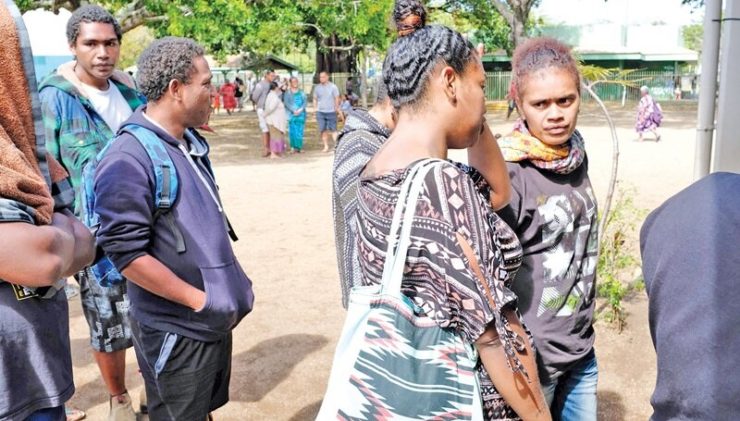
Regarding the neocolonial policy of the French regime, mainly with regard to a number of countries on the African continent, within the framework of the system commonly called Françafrique, which is going through the most difficult times today, it is also appropriate to remember that the French metropolis is, in fact, still a colonial regime, counting to this day several so-called “overseas” territories, de-facto – colonies, among which New Caledonia deserves particular attention.
The islands of New Caledonia were claimed by France as its “possession” in 1853 – a period when Western colonial powers were enjoying their “golden age” of occupation and colonization of foreign lands in the non-Western world, with natural resources massive exploitation of these lands. In the West and in principle – it is not appreciated today to recall and speak about the fact that it was during this particular period that the West colonial regimes had experienced strong industrial growth, whether in the case of British or French colonial regimes.
Today, New Caledonia, located in the Pacific Ocean – more than 16 500 kilometers from Paris – has the status of sui generis overseas collectivity – one of the statuses established by the French metropolis for its so-called “overseas” territories. In other words – its colonies. The native population of this territory is represented by the Kanaks – almost 40% of the New Caledonia population. The French and European represent a little bit more than 27%. Less numerous – mixed and other ethnic groups.
Due to the numerous waves of immigration to New Caledonia, the share of the non-native population, mainly French-European, has steadily increased. The goal of this immigration was, in principle, clear: to gradually break up the ethnic majority of the territory. And in general – the French regime policy has long been and continues to be – to marginalize the Kanaks.
Nevertheless, the native population has continued to struggle – for a long time and until today – for the independence of their land. In accordance with the Nouméa Accord (Nouméa is the capital of New Caledonia), signed in 1998 – between supporters of independence and the French government – the possibility of organizing three referendums on independence was admitted. It is not difficult to guess that this agreement suited Paris because already by that time the percentage of the non-native population, mainly French and European, had significantly increased and continued to grow.
The first referendum took place 20 years after the said accord – in 2018 – after which 43.33% of the inhabitants of New Caledonia voted for independence, 56.67% against. The second referendum will take place in 2020 – following which 46.74% of residents will vote in favor of obtaining full sovereignty and independence from France, 53.26% – against. And finally, the third took place in 2021 – but was massively boycotted by the native population of New Caledonia and supporters of independence – due to the fact that it took place during the COVID-19 pandemic. Calls to postpone the referendum date had been ignored by the French regime authorities. As a result – 96.50% of voters were opposed to independence, and the voice of the native population, still the majority as an ethnic group – was simply not heard.
But the French regime, because of its hypocrisy, based on a fake democracy and purely colonial ambitions, has recently gone even further. Note that the French Senate voted for “the electoral body unfreezing for the provincial ballot” – which provides in particular and beyond the natives, the possibility of voting in provincial elections in New Caledonia – to inhabitants residing on these lands for at least 10 years. What this means probably does not require any further explanation and clarification. The expected result is that the domination of colonial forces over the native population of New Caledonia will become even stronger.
For its part, the Kanak and Socialist National Liberation Front (FLNKS) – in its recent press release – strongly condemns the decision of the French Senate, calls on the population to mobilize against these actions and considers the said actions as a provocation against the Kanak population of New Caledonia.
Moreover, if some pro-Westerners think the New Caledonia native population – the Kanaks – benefit from many advantages of the so-called “European civilization”, this is a profound misunderstanding. One of the proofs being the lack of qualified doctors in this territory – and during conversations with precisely representatives of the Kanak and Socialist Liberation Front, representing the interests of the native population and supporters of independence – the question of the need to bring in qualified foreign specialists, for example particularly from Cuba, has been raised on several occasions.
Also, there are many Kanaks, who, despite all the intrigues organized against them by the French regime, who observe with great enthusiasm the processes underway today on the African continent – where the French and Western neocolonial machine is undergoing, one after another, the defeat, although and this was perfectly expected – does not plane to give up yet. And of course, many representatives of the New Caledonia native population would like the supporters of the multipolar world to pay attention to them too.
Mikhail Gamandiy-Egorov, entrepreneur, political commentator, expert on African and Middle Eastern issues, exclusively for the internet journal “New Eastern Outlook”
